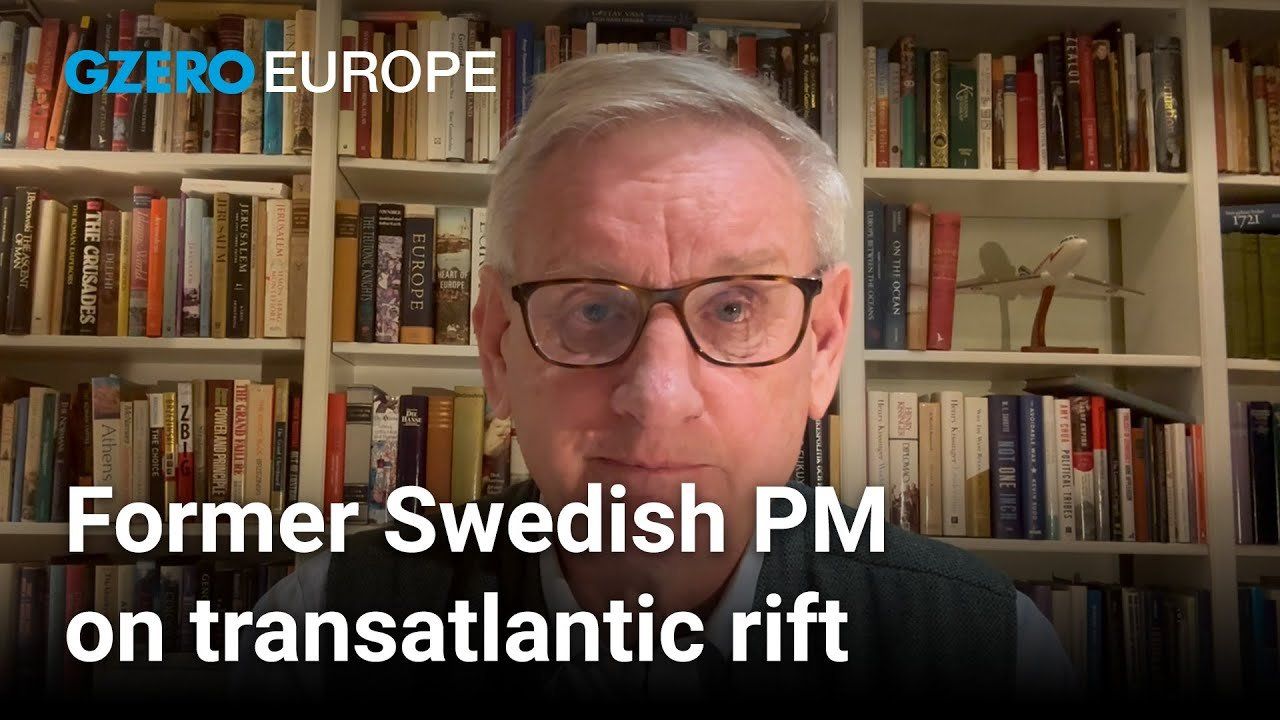March 05, 2025
Carl Bildt, former prime minister of Sweden and co-chair of the European Council on Foreign Relations, shares his perspective on European politics from Stockholm, Sweden.
Is the transatlantic relationship permanently damaged by what we have seen during the last 10 days or so?
Well, there is no question that the last 10 days or so have been the worst by far for the transatlantic relationship in, well, modern recorded history. You can go through all of the details if you want. It started with the shameful vote in the UN General Assembly on the same day that was three years after the war of aggression that Russia started, where the United States turned around, lined up with Russia, and with primarily a bunch of countries that you would not normally like to be seen in the company of, in order to try to defeat the Europeans, and defeat the Ukrainians, and defeat the Japanese, and defeat the Australians, defeat all of the friends who have criticized the Russians.
It was truly shameful. It was defeated, needless to say, but it left deep marks there. And then it was downhill from there, with that particular week ending with the ambush in the Oval Office, with all of the details associated with that, with sort of a childish dispute about dress codes, and respect for whatever, and total disregard for the important issues that are at stake at the moment. And to that was added, the vice president seriously insulting the allies, primarily the British and the French, and then cutting of aid to Ukraine, including intelligence cooperation, which is unheard of, unheard of when it comes to these particular issues.
So, is damage permanent? Well, one would hope that... well, hope springs eternal, that there would be a way back. But this will be remembered for a long time to come. And the reaction in Europe, well, you have to keep a straight face if you are a political leader. And they do, they hope for the best, but they're increasingly preparing for the worst. What we might be heading into is Mr. Trump, President Trump lining up with President Putin in a deal that is essentially on Russia's term over Ukraine, then trying to force Ukraine into that particular deal, a repetition of Munich 1938.
Will that work? I think it's unlikely to work because the Ukrainians are determined to stand up for their country. And they have the support of the Europeans. Czechoslovakia in 1938 didn't have much support. So, whether it will work or not is debatable, but that is the direction in which things are heading at the moment. Can this be stopped or can the trajectory of things be changed? Let's hope. There's a flurry of meetings in Europe. There will be a lot of contacts across the Atlantic. There is a strong support for Ukraine in Europe, but then deep apprehensions of where we are heading. Further four years with President Trump. After that, (possibly) four to eight years with JD Vance. Well, well, there's a lot of thinking that needs to be done on this side of the Atlantic.
More For You
- YouTube
Is China’s economic model reaching a breaking point? In GZERO’s 2026 Top Risks livestream, Cliff Kupchan, Chairman of Global Macro at Eurasia Group, highlights mounting pressures on the Chinese economy.
Most Popular
2026 is a tipping point year. The biggest source of global instability won’t be China, Russia, Iran, or the ~60 conflicts burning across the planet – the most since World War II. It will be the United States.
While surgeons remain fully in control, technological advances are expanding the use of surgical robots in operating rooms. As adoption accelerates, so do the expectations for patient outcomes and surgical care. Track medical innovation trends with Bank of America Institute.
- YouTube
Europe enters 2026 under mounting strain as it confronts external threats, internal political pressures, and a weakening relationship with the United States. In GZERO’s 2026 Top Risks livestream, Mujtaba Rahman, Managing Director for Europe at Eurasia Group, describes a continent that is “exhausted, fatigued, weak, and vulnerable.”
© 2025 GZERO Media. All Rights Reserved | A Eurasia Group media company.
